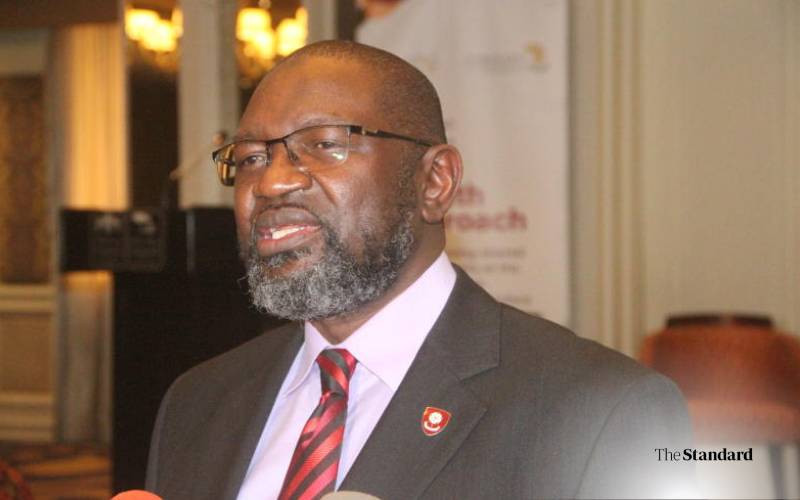African Leaders and CDC Launch Major Initiative to Combat Cholera
On June 4, 2025, twenty African Union (AU) Member States affected by cholera held a significant high-level virtual meeting. This historic event, convened following a call by the Africa Centres for Disease Control and Prevention (Africa CDC) and under the leadership of H.E. Hakainde Hichilema, President of Zambia and AU Champion on Cholera, demonstrated remarkable political resolve and continental unity. The meeting saw participation from ten Heads of State and Vice-Presidents representing Angola, Zambia, the Democratic Republic of Congo, Namibia, Ghana, Malawi, Mozambique, South Sudan, Tanzania, and Zimbabwe. They were joined by Deputy Prime Ministers, Ministers of Health, Finance, and Water and Sanitation, as well as global health partners including WHO, UNICEF, Gavi, the Global Fund, and others, all united to combat cholera.
The urgency of the meeting was underscored by alarming statistics: as of May 2025, Africa had reported approximately 130,000 cholera cases and 2,700 deaths. These figures account for 60% of globally reported cases and a staggering 93.5% of cholera-related deaths worldwide. Countries like Angola, the Democratic Republic of Congo, Sudan, and South Sudan were identified as among the most severely affected by the ongoing outbreaks.
In his opening address, H.E. Mahmoud Ali Youssouf, Chairperson of the African Union Commission, emphasized the need for decisive action and systemic reforms. "The people of Africa are watching. They expect bold, coordinated, and unwavering leadership that puts their health and dignity first," he stated. "This crisis demands action at the highest political level. Only through the direct engagement of our Heads of State can we drive the elimination of cholera by 2030. This requires a continental shift—strong national leadership, domestic investment, integrated national actions, and regional coordination. We must also break the cycle of dependency by accelerating vaccine manufacturing and ensuring equitable access to life-saving tools."
H.E. João Manuel Gonçalves Lourenço, President of Angola and current Chairperson of the African Union, highlighted the critical role of transformative investments. "To tackle this disease, we must invest robustly in water, sanitation, and health systems," he urged. "This is our moment to turn historic challenges into real opportunities for economic and social development."
Dr. Jean Kaseya, Director General of Africa CDC, pointed to the systemic drivers fueling the crisis, including limited Water, Sanitation, and Hygiene (WASH) infrastructure, insecurity, weak coordination among stakeholders, and critical shortages of oral cholera vaccines. "Africa needs 54 million doses of oral cholera vaccine annually but receives barely half. This gap is unacceptable," Dr. Kaseya declared. "Urgent action is needed to scale up local production and secure supply."
Dr. Tedros Adhanom Ghebreyesus, Director-General of the World Health Organization (WHO), commended the leadership demonstrated by the African Heads of State. "I commend the Heads of State for their vision and commitment," he said. "WHO will intensify its support to affected countries through this Call to Action."
In response to the crisis, African leaders made significant commitments. They pledged to operationalize the Continental Incident Management Support Team (IMST), drawing lessons from the successful mpox response, to bolster cross-border surveillance and coordination. At the national level, leaders committed to establishing Presidential Task Forces on Cholera. These task forces will aim to strengthen multisectoral coordination, mobilize essential domestic resources, and enforce robust accountability frameworks to ensure progress.
Further commitments included a strong emphasis on scaling up local vaccine manufacturing to address shortages and reduce dependency on external supplies. Expanding WASH infrastructure was also identified as a key priority, alongside deepening partnerships with the private sector to leverage additional resources and expertise in the fight against cholera.
Etleva Kadili, UNICEF Regional Director for Eastern and Southern Africa, delivered a poignant reminder of the disproportionate impact of cholera on children. "Children bear the brunt of this crisis," she stated. "Bold action and unwavering political will are urgently needed to protect them."
Dr. Sania Nishtar, CEO of Gavi, the Vaccine Alliance, provided an update on vaccine availability, noting significant improvements from 2 million doses in 2013 to over 21 million in 2025. She also highlighted the delivery of 1.9 million rapid diagnostic kits to aid in outbreak detection. Dr. Nishtar reaffirmed Gavi’s commitment to supporting local vaccine manufacturing in Africa through initiatives like the African Vaccine Manufacturing Accelerator (AVMA) and called for global support for Gavi’s upcoming replenishment.
In his closing remarks, H.E. Hakainde Hichilema, President of Zambia and AU Champion on Cholera, reaffirmed his dedication to monitoring progress and reporting back to the AU Assembly. "We have issued a clear Call to Action. Now we must deliver—through scaled-up domestic investments, strengthened cross-border coordination, and community-driven responses," he declared. "Africa needs one continental IMST, one community-centered plan, and one accountability framework."
This high-level meeting signifies a crucial turning point in Africa's collective response to cholera. The commitments made, anchored in high-level political ownership, a commitment to multisectoral collaboration, and a spirit of continental solidarity, offer a renewed hope for controlling and ultimately eliminating cholera from the continent by 2030.
The Africa Centres for Disease Control and Prevention (Africa CDC), a public health agency of the African Union, played a key role in convening this meeting. The Africa CDC is an autonomous body dedicated to supporting AU member states in strengthening their health systems, improving disease surveillance, enhancing emergency response capabilities, and advancing disease control efforts across the continent.










